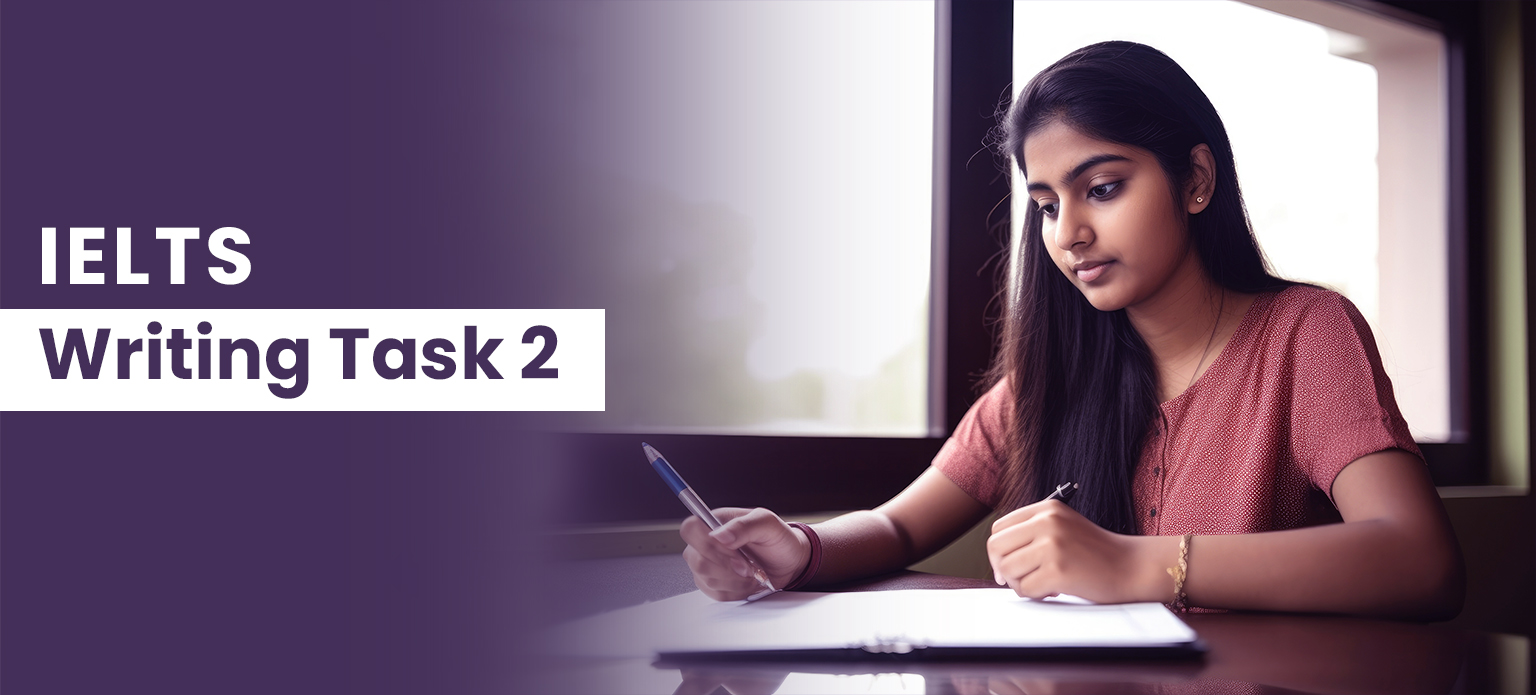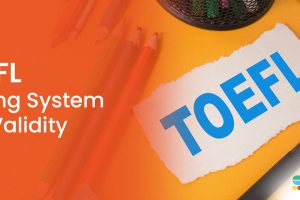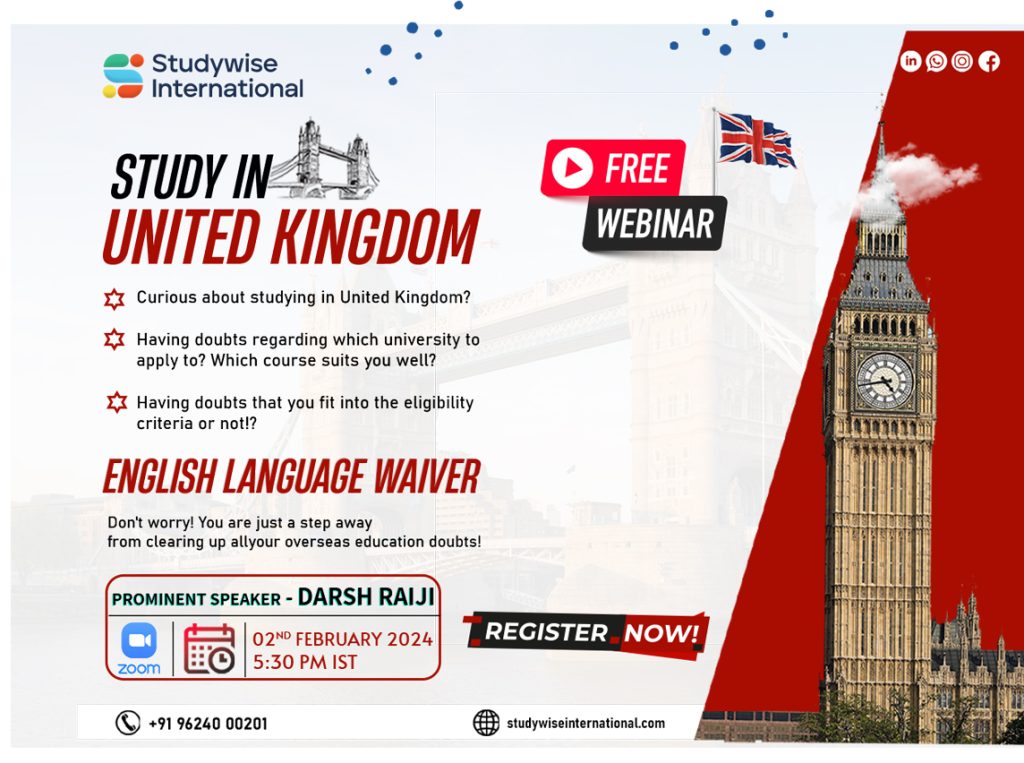
IELTS Writing Task 2 Essay: Topics, Tips and More
- Categories Abroad Test Preparation, All Study in Abroad Blogs
- Date May 17, 2024
IELTS is the most known English proficiency test around the world. At present, over 11,500 universities and colleges explicitly accept IELTS as proof of English reading, listening, writing and speaking skills of their applicants across 140 countries. While it is not the easiest to scope, the syllabus is pretty understandable. Particularly, the writing section of the test has 2 tasks. The first, to write within 150 words in under 20 minutes, requires the candidate to interpret the shared visual in words. The latter, however, requires a full-fledged essay under 250 words. Candidates get about 40 minutes to share their thoughts on the view, argument or problem.
In this blog, we will be discussing the Writing Task 2 in detail.
How to Write
Significantly, this task is more about sharing your thoughts than writing an impressive essay. With a good grasp of the language, IELTS wants students to pen down their thoughts with clarity, empathy and logic. Notably, the test is for both undergraduate and postgraduate applicants. The topics covered in the essay are more likely to level with the latter. As a result, students applying for a UG course in a foreign university or institute need to try harder.
Students start off strong with an introduction. Particularly, plan your essay in three parts – intro, para and conclusion. You may break your idea into 2-3 paragraphs as long as you don’t exceed the word limit and maintain the continuity of the essay. In other words, develop the art of paraphrasing. Each paragraph must consist of a sub-statement, supporting statements and development sentences. As a matter of fact, supporting your thoughts in the development sentences with relevant real-life examples and stagnant numbers and figures could be the home run you are aiming at. Lastly, draw a conclusion solidifying the deal.
Common Essay Topics
There are mainly 5 types of essay questions in IELTS Writing Task 2. While the question could demand an opinion, discussion or solution, it could have a direct question to answer or an intention of seeking an advantage or disadvantage. Regardless of the type, make sure to sit well with your thoughts and not have them wave throughout the essay.
One of the common topics for the IELTS Writing Task 2 question under Art is:
- Art at School
- Censorship of Art and Artists
- Creativity
- Funding
- The Benefit of Art for Individuals and Society
- Value of Art
Further, Business & Money topics are:
- Business and Technology
- Family-Run Business
- International Business
- Management and Leadership
- Materialism and Consumerism
- Skills vs Knowledge for Business
- Small vs. Large Business
- Success in Business
Communication & Personality topics:
- Family and Communication
- Female/Male Characters
- Innate or Developed Personalities
- Pace to Face vs Long Distance Communication
- Personality and Health
- Technology and Communication
- The Development of Character and Personality
- Types of Communication
Crime & Punishment:
- Capital Punishment vs Other Types of Punishment
- Crime and Technology
- Crime Prevention
- Crime Rates
- Criminals – what Makes a Criminal
- Juvenile Delinquency
- Major vs Minor Crime
- Men and Women in Law Enforcement
- Prisons vs Rehabilitation
- Punishment
- Role of the Police
- Teenage and Crime
Culture:
- Art and Music
- Cultural Heritage
- Festivals and Traditions
- Language Preservation
- Media Influence
Particularly, Economics could have many subtopics as the world grows:
- Cash vs Credit Cards
- Economic Growth
- Economic Progress and Success
- Globalisation and Economy
- Government and Economy
- Saving vs Spending
- World Economic Issues
Likewise, Education could have topics like:
- Bullying in Schools
- Children and Education
- Compulsory Education
- Discipline
- Education Aid to Poorer Countries
- Education and Technology
- Education Methods
- Funding
- Higher Education
- Home Schooling
- Relevant Subjects
- Role of Teachers
- Single-sex Schools
- Teacher-Student Ratio
- Technology in Education
- Uniforms
Environment:
- Animals
- Climate Change
- Environmental Problems
- Global Warming
- Government and Individual Roles
- Individuals and Environment
- Pollution
- Protection of Endangered Species
- Waste Management
- Wildlife Conservation
- Zoos
Family & Children:
- Disciple
- Family and Education
- Family Relationships
- Family Roles
- Family Size
- Role Models
- The Generation Gap
While Food & Diet stay an integral part of our lives, we still might struggle to write about them. Students must prepare on topics like:
- Children and Diet
- Diet and Nutrition
- Education of Diet
- Fast Food
- Health Issues
- Modern Food
- Safety of Food
- Traditional Food
- Traditional vs Modern Diet
Global Issues:
- Globalisation
- Human Rights
- Immigration
- International Aid
- International Trade
- Overpopulation
- Poverty and Inequality
Government:
- Government Policies
- Government Spending
- International Policies
- Law and Order
- Public Services
- Role of Government
Unlike Food and Diet, the topic of Health could seem more well-versed:
- Dealing with Global Epidemics
- Diet and Nutrition
- Exercise and Fitness
- Funding
- Health Aid
- Health and Lifestyle
- Health Education
- Healthcare Systems
- Mental Health
- Obesity
- Poor Countries and Rich Countries
- Prevention vs Cure
- Public Health Policies
Language:
- Having One Language in the World
- Language and Culture
- Methods of Language Learning
- Native vs. Foreign Language
- The Disappearance of Languages
- Travel and Language
Media & Advertising:
- Advertising Standards
- Children and Advertising
- Censorships, Control and Freedom of Speech
- Influence of Media
- Media and Technology
- Media Bias
- News and Reporting
Reading:
- Books in Education
- Children and Reading
- Importance of Reading
- Libraries
- Paper Books vs Ebooks
- Reading Habits
- Reading vs. Digital Entertainment
IELTS occasionally has had strong topics on Society like:
- Ageing Population
- Budget Spending
- Community and Society
- Crimes of the Streets
- Cultural Differences
- Equality and Inequality
- Family and Relationships
- Gender Roles
- Homelessness
- Modern Lifestyles
- Overpopulation
- Poverty
- Public Services
- Social Structures
- Social Welfare
Sport & Exercise:
- Equipment
- Exercise and Mental Health
- Men vs Women in Sports
- Physical Health
- Professional Sports
- Salary
- Sport as a School Subject
- Sports and Learning
- Types of Sports
Technology:
- Artificial Intelligence
- Children’s Safety and Technology
- Cybersecurity
- Hacking
- Impact of Technology
- Impact of Technology on Jobs
- Internet and Social Media
- Letter vs Email
- Safety of Personal Information
- Socialising Online
- Sorting Data
- Technological Innovations
- Technology and Work
- Technology in Education
Tourism:
- Benefits of Traveling
- Ecotourism
- Economic Impact of Tourism
- Impact of Tourism on Local Communities
- Living in a Global World
- Tourism and Culture
- Travel Experience
Further, Transport could have topics like:
- Different Forms of Transport
- Development of Infrastructure
- Problems with Modern forms of Transport
- Public Transport
- Traffic Issues
- Transport and Environment
Lastly, topics around Work could be:
- Blue Collar vs White Collar Jobs
- Career Development
- Children and Exploitation
- Employment
- Employment Trends
- Equality
- Job Satisfaction
- Salary
- Shift Work and Part-Time Work
- Women in Work
- Work-Life Balance
- Workplace Diversity
- Workplace Environment
Tips
As long as you plan on saving time with Task 1, you will have more time in hand to think and write in Task 2. After reading the question thoroughly, try to understand the type of the question. Stick with the essay structure coupled with honesty in your thoughts. IELTS is, in fact, a vocabulary test. While you don’t need high-level words to write carefully, avoid repeating words. After completing the essay, particularly replacing the repeating words with a relevant pronoun or, better, synonym would save time. However, ensure that the new words fit the context of your statements.
How to Prepare
Firstly, take an online practice test. This would consequently give you a clear idea of your starting and ending points. In effect, you can start your preparation to cover the distance. Students preparing for IELTS can advantage of the several books currently available online. However, remember to focus on quality and not quality. Invest in quality reading and watching documentaries on relevant subjects to further build your knowledge quotient. Alternatively, seek guidance from a professional.
Call Studywise International to get a FREE DEMO of their IELTS classes today!
You may also like

Ireland Intake 2024-25: Universities & Preparation Timeline

TOEFL Scoring System and Validity


